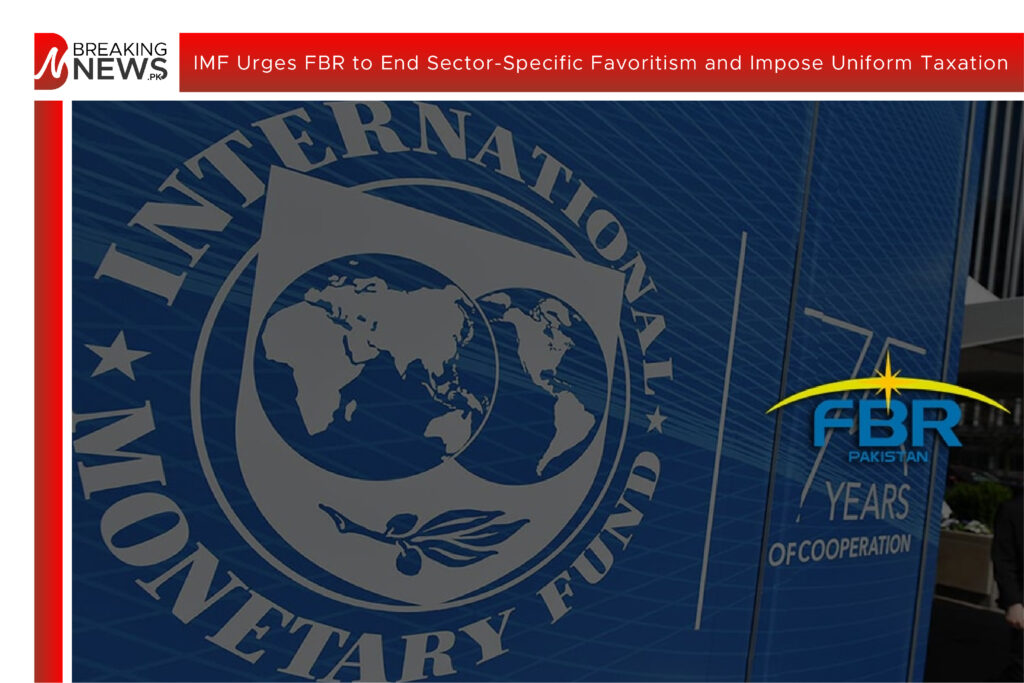
IMF Urges FBR to End Sector-Specific Favoritism and Impose Uniform Taxation
The International Monetary Fund (IMF) has identified significant complexity and dysfunctionality in Pakistan’s current sales tax system, attributed in part to the division of the tax base between goods and services.
Under the current framework, the federal government administers the sales tax on goods through the Sales Tax Act, while provincial governments handle the sales tax on services. However, in the Islamabad Capital Territory (ICT), the federal government applies sales tax on services under the ICT (Tax on Services) Ordinance, 2001.
According to IMF sources, this complexity is compounded by numerous special treatments for specific products and sectors, leading to reduced revenue generation and administrative challenges.
Pakistan’s federal sales tax system incorporates multiple tax rates, including a general rate of 18 percent on goods supplied and imported. Additionally, a higher rate of 25 percent applies to various imported and supplied goods, as well as certain locally manufactured vehicles. The system also includes zero-rated and exempt supplies, along with around fourteen reduced rates ranging from half a percent to 17 percent, plus two specific rates. The IMF noted the imposition of a four percent additional tax on those making taxable supplies without registration.
Also Read:
FBR to Activate Business Registry for Shopkeepers and Traders Next Week
